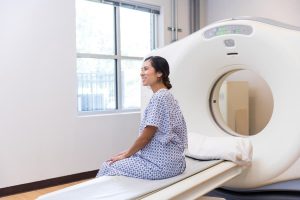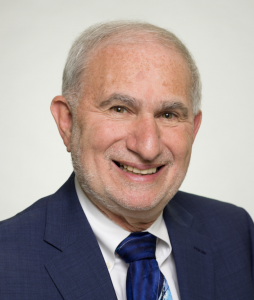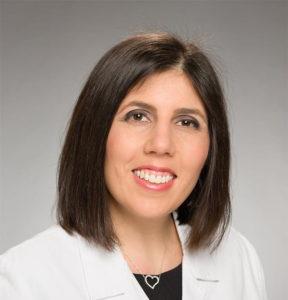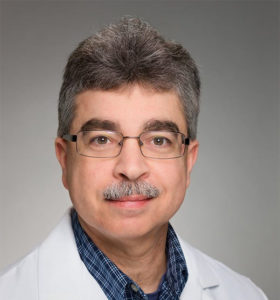
What Is a Virtual Colonoscopy?
The earlier cancer can be treated, the more treatment options are available, and the more successful the treatment will be. This makes early detection the
HIPAA Alert: Potential Data Breach Learn More
Questions on Oncology, Hematology and/or Infusion Clinical Services due to COVID-19 Crisis – CALL 833-698-1623
Important Information for Our Patients Regarding the Coronavirus.
RCCA Providing Area Cancer Patients with Access to Care During Coronavirus Outbreak
RCCA Offering Patients Virtual Visits During Coronavirus Pandemic
The cancer death rate fell 33% from 1991 to 2020, which translates into 3.8 million fewer deaths from cancer in that period.1 The availability of new, effective treatments played a major role in the decline, and the pace of drug development has only accelerated in recent years. The Food and Drug Administration (FDA) issued 207 cancer drug approvals from 2016 through 2021,2 and the first six months of 2023 saw more than a dozen additional approvals.3,4
The recently approved therapies target dozens of different cancers and work in a wide variety of ways, but they all have one thing in common: each was approved by the FDA on the basis of clinical study results. If thousands of people with cancer had not enrolled in those studies, the treatments would not be available to the millions of people who rely on them today, including the 1.9 million people in the United States who will be diagnosed with cancer in 2023.1
The medical oncologists and hematologists of Regional Cancer Care Associates (RCCA) – one of the nation’s largest networks of cancer specialists — make use of those cutting-edge therapies every day in treating patients at more than 20 community-based care centers throughout New Jersey, Connecticut, and the Washington, DC area. RCCA physicians also offer their patients the opportunity to participate in roughly 300 clinical studies being conducted in their offices.
Kenneth D. Nahum, DO, a board-certified medical oncologist and hematologist, says, “As clinicians, we know from firsthand experience how new therapies are saving or extending our patients’ lives. As researchers, we also have firsthand experience with the questions and concerns patients weigh when considering enrolling in a study. Whether to participate in a study is a choice each person has to make for himself or herself. Our job is not to ‘push’ people one way or the other, but rather to provide all the pertinent information, address every question, and give our honest assessment of what is best for that patient, who – again — is the decision-maker.” Dr. Nahum, who treats patients at RCCA offices in Howell, Neptune, and Toms River, NJ, adds, “Beyond providing patients with all of the facts they need to make an informed decision, I think it’s incumbent on us as physicians to speak to misconceptions that often make people reluctant to join a clinical study.” As a researcher who has served as a principal investigator in 120 studies of cancer therapies, Dr. Nahum says he routinely encounters three misconceptions, which his RCCA colleagues address below.
Clinical studies are only for people who have no other treatment options left.

Paul Bannen, MD, a board-certified medical oncologist who practices at RCCA offices in Clarksburg, Olney, and Rockville, MD says, “Many clinical trials assess drugs that already are approved for metastatic cancer and now are being studied to evaluate their effectiveness and safety in earlier-stage disease. In that case, the patient obviously has other options because he or she has, for example, localized disease that has not progressed. The hope in such cases is that if a medication has demonstrated its value in treating an advanced cancer, it will be as effective or perhaps even more effective against earlier-stage disease.”
Dr. Bannen notes, “In considering participating in a clinical study, it is important to understand exactly why your physician suggested the trial – what benefits he or she hopes you may obtain. You also want to ask about what already is known about the medication being studied, including any data on its use in other types of cancer or stages of your cancer for which it already is approved.” (See accompanying article, “6 Questions to Ask When Considering Joining a Clinical Study.”)
If I join a clinical study, I’ll have to stop my current treatment and may get a placebo.

“This is one of the most common concerns I hear when talking with patients about clinical studies,” says Rachel Levenbach, MD, a board-certified medical oncologist and hematologist who practices at RCCA’s Moorestown, NJ office. She adds, however, that it is based on a misconception about the different types of clinical trials and how each is structured.
Dr. Levenbach explains, “There are three broad types of clinical studies. When a drug has shown promise in laboratory studies, it goes on to a Phase 1 trial. In Phase 1, the focus is on safety and on identifying the highest dose of the medication that can be given without causing significant side effects. Phase 1 trials are relatively small, and everyone participating in these studies receives the investigational drug.”
Phase 2 trials enroll a greater number of patients and evaluate the effectiveness of a medication as well as its safety, the cancer specialist notes. She adds that, as with Phase I trials, all study participants in Phase 2 trials receive the medication being evaluated.

If a therapy demonstrates efficacy and a reassuring safety profile in a Phase 2 study, it advances to a Phase 3 trial. These are the main trials the FDA considers when deciding whether to approve a drug. They also are the sort of studies most people have in mind when they think of clinical trials, and they represent a large portion of the studies in which RCCA patients participate.
Dr. Levenbach explains, “In Phase 3 trials, study participants are assigned in a randomized fashion to the treatment group or the control group. People in the treatment group receive the medication being evaluated, while those in the control group do not. However, study participants in both groups continue to take their current therapies. People in the treatment group receive the study medication in addition to current standard-of-care therapies. People in the control group also continue to receive standard-of-care therapies; they just do not receive the medication being studied. Too often, people think that participants in both groups must discontinue their current treatments in order to be in the study, but that is not the case.”
The cancer specialist adds that much of the confusion on this score arises from researchers sometimes referring to the control group as the “placebo group” or “placebo arm.” She says, “While people in the control group do receive a placebo instead of the medication being studied, they are receiving their current therapies plus the placebo.”
But what about the fact that if a trial assigns people to the treatment and control groups on a 1:1 basis, participants have a 50% chance of not receiving the study drug? Why bother enrolling given those odds?
Dr. Levenbach says, “It’s true that in a randomized trial you may be assigned to the control arm and not receive the medicine being evaluated during the 24 weeks or other period specified for measuring the study’s endpoints. However, the great majority of studies conducted today have what’s known as an open-label extension study that follows the main trial and that is designed to evaluate the longer-term safety of a medication. During this open-label extension, patients from both arms of the original study receive the investigational medication over one or two years, if not longer.” The medical oncologist explains that other Phase 3 studies have a cross-over design, meaning that people in Group A receive the investigational drug in the first half of a study and then serve as the control group in the second half, while people in Group B do the opposite. “The bottom line is that your physician or clinical research nurse should thoroughly explain the study you’re considering, and you should not hesitate to ask questions and obtain all of the information you need to make an informed decision,” Dr. Levenbach notes.
Clinical studies are only conducted at major academic medical centers in big cities.
Michael Reale, MD, has practiced medicine for more than 30 years, treating cancer patients in an Ivy League-affiliated academic medical center and, for the last several years, at RCCA’s Manchester, CT office. “In both settings,” he says, “I have applied the same evidence-based approaches to care, treated my patients with the latest therapies, and offered them the opportunity to enroll in clinical trials.”
Dr. Reale, who is board-certified in medical oncology and hematology, adds, “Eighty percent or more of oncology care is offered in the community setting, and recent years have seen a significant shift toward increased clinical research being conducted here in the community, which dramatically increases our patients’ access to clinical trials and the convenience of participating in a study.”
He continues, “The other advantage of participating in a clinical trial at a community-based care center such as an RCCA office is that your physician and the nurse serving as the study coordinator know you and your situation very well and are readily available if a question or concern arises.”

The cancer specialist notes that RCCA currently is involved with roughly 300 clinical trials, and that patients can search https://www.regionalcancercare.org/clinical-trials/ to see which trials are being offered at which RCCA care centers.
Dr. Reale says, “The mission of RCCA is to provide patients with comprehensive, compassionate care and the latest therapies in a convenient, community-based setting. I’m proud that we fulfill that mission not only by treating our patients with the latest FDA-approved therapies but also by giving them an opportunity to participate in the clinical studies that are driving the remarkable progress we’ve achieved in the fight against cancer.”
6 QUESTIONS TO ASK WHEN CONSIDERING JOINING A CLINICAL STUDY
******
Drs. Nahum, Bannen, Levenbach, and Reale are among the 90+ cancer specialists who treat patients at more than 20 RCCA care centers located throughout New Jersey, Connecticut, and the Washington, DC area. RCCA oncologists and hematologists see more than 23,000 new patients each year and provide care to more than 225,000 established patients, collaborating closely with their patients’ other physicians. They offer patients the latest in cutting-edge treatments, including immunotherapies and targeted therapy, as well as access to a wide range of clinical trials. In addition to serving patients who have solid tumors, blood-based cancers, and benign blood disorders such as anemia, RCCA care centers also provide infusion services to people with a number of non-oncologic conditions—including multiple sclerosis, Crohn’s disease, asthma, iron-deficiency anemia, and rheumatoid arthritis—who take intravenously-administered medications.
To learn more about RCCA, call 1-844-346-7222 or visit RCCA.com.
References
For more information or to schedule an appointment,
call 844-346-7222. You can also schedule an appointment by calling the RCCA location nearest you.

The earlier cancer can be treated, the more treatment options are available, and the more successful the treatment will be. This makes early detection the

If an individual is experiencing symptoms of lung cancer or an infection, the next step is a lung biopsy. This step can sound worrisome at

Hannah Yamin, DO, a board-certified medical oncologist and hematologist practicing with Hematology Oncology Specialists of Cape Cod (HOSCC) in North Falmouth, MA, threw out the

Regional Cancer Care Associates is one of fewer than 200 medical practices in the country selected to participate in the Oncology Care Model (OCM); a recent Medicare initiative aimed at improving care coordination and access to and quality of care for Medicare beneficiaries undergoing chemotherapy treatment.